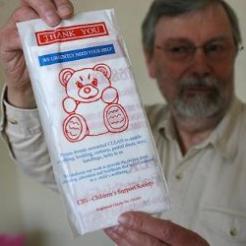The amount that charity shops lose to bogus house-to-house collections is significantly higher than the £3m figure that the Association of Charity Shops had originally put on the value of the scams.
David Moir, head of policy and public affairs at the ACS, told Civil Society that the organisation is “absolutely certain” that the figure has increased and has much anecdotal evidence to suggest that the number and frequency of bogus collections too has risen.
The most recent value the ACS ascribed to bogus scams is £3m.
“Last year one charity with shops – one of the biggest charities – it was reporting its own losses were £2.5m-£3m. So add on the other 100 or so [association member] charities with shops who carry out house-to-house collections and our estimate is definitely an under-estimate,” said Moir.
“I don’t have an up-to-date estimate for the whole sector, but we know that it’s considerably more than the last time I was talking about these things.”
The increased cost, Moir said, can be attributed to the steadily increasing value of rag on the international market and he suggested that during the recession, house-to-house collection scams may be seen as an easy way to make money.
Asked whether bogus collections or commercial partnership collections, such as that of Clothes Aid which collects rag for NSPCC, are the greatest threat to the vitality of house-to-house collection income, Moir said “They both undermine people’s trust and confidence in house-to-house collections, so in that regard they’re both serious. Some of our members rely on house-to-house collections for half their stock and if the public stops donating to house-to-house they’re going to start going out of business. It’s that simple.”
Moir said the Association’s concern with commercial partnership collections is that people don’t often realise the collection is not going directly to a charity and “that tends to upset them and can put them off giving to those types of collections”.
Code working party
Moir said that the ACS is in regular contact with minister for civil society Nick Hurd and other government ministers on the issue.
He also pointed out that the ACS is working with the Institute of Fundraising in developing a code of practice on house-to-house collections. A working party on the code first met in January and has been meeting regularly since.
Read a summary of the Charity Shop Survey 2010 here.










